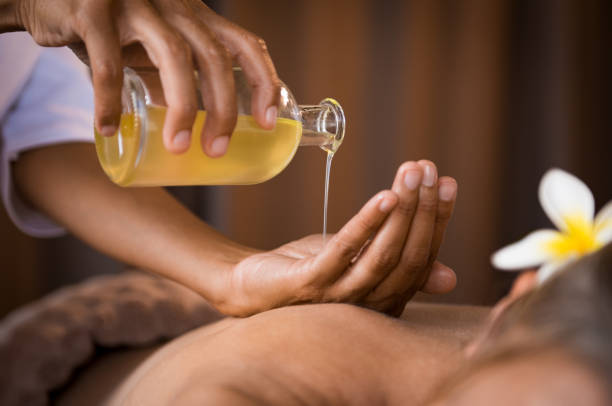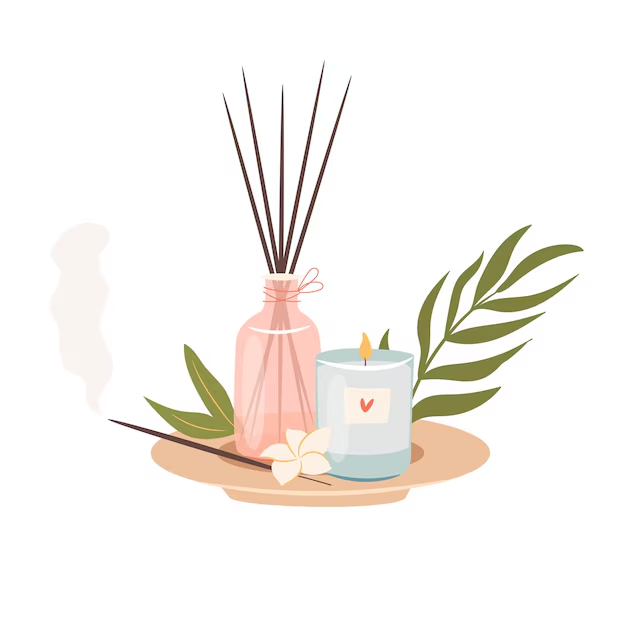
Essential oils are concentrated plant extracts that capture the natural scent and beneficial properties of plants. These potent extracts have been used for centuries in various cultures, such as ancient Egyptian, Chinese, and Ayurvedic medicine, to promote physical, emotional, and spiritual well-being. Essential oils are obtained through processes like steam distillation or cold pressing, which retain the active compounds that provide therapeutic benefits. They contain the essence of the plant’s fragrance and properties, making them effective in holistic health practices, including aromatherapy, massage therapy, and skincare routines. When used properly, essential oils can support the body’s natural healing processes, enhance mood, and create a sense of balance and relaxation, contributing to overall well-being.
How Aroma Therapy Works?
Aromatherapy works by harnessing the properties of essential oils to promote physical, mental, and emotional well-being through inhalation and topical application. When essential oils are inhaled, their scent molecules travel through the olfactory nerves in the nose to the brain’s olfactory bulb. This bulb is directly connected to the limbic system, which controls emotions, mood, and memory. The interaction with the limbic system can trigger emotional responses and release chemicals like serotonin and endorphins, helping to reduce stress, anxiety, and depression. For instance, inhaling lavender oil can activate calming signals, promoting relaxation and better sleep.

Essential oils are inhaled or absorbed, sending scent molecules to the olfactory bulb in the brain, which connects to the limbic system that regulates emotions and mood.
Essential oils can be applied topically, allowing their active compounds to penetrate the skin, enter the bloodstream, and provide localized benefits like pain relief and reduced inflammation.
Aromatherapy enhances the environment through diffusers and baths, creating therapeutic aromas that can uplift mood, promote relaxation, and improve overall well-being.
Different Different essential oils possess unique properties: for instance, tea tree oil is known for its antimicrobial effects, while peppermint oil can help relieve headaches and boost mental clarity. This diversity allows for tailored approaches to specific health concerns or emotional states.
Benefits of Aromatherapy
-
Reduces Stress and Anxiety
Aromatherapy can help lower stress levels and alleviate anxiety through the calming effects of essential oils like lavender, chamomile, and bergamot.
-
Improves Sleep Quality
Certain essential oils, such as lavender and cedarwood, promote relaxation and can help improve sleep quality and combat insomnia.
-
Relieves Pain
Essential oils such as peppermint and eucalyptus have analgesic properties that can help reduce headaches, muscle pain, and joint discomfort when applied topically or inhaled.
-
Balances Emotions
Aromatherapy can help stabilize emotions and promote a sense of well-being, making it useful for emotional balance and mental health support.
Book an appointment
We provide
best services.
Proven Experience Over the Years
Must explain to you how all this mistaken denouncing pleasure & praising
Contact Details
-
Clinic Address: Shyam Sundar Nagar, Near Saha Market, Babugaon Chowk, Hazaribag, Jharkhand - 825301.
-
Registered Address:C/O Ranjish Kumar Pathak, Unta, Chatra, Jharkhand - 825401
-
Phone: +91 86036 71064

